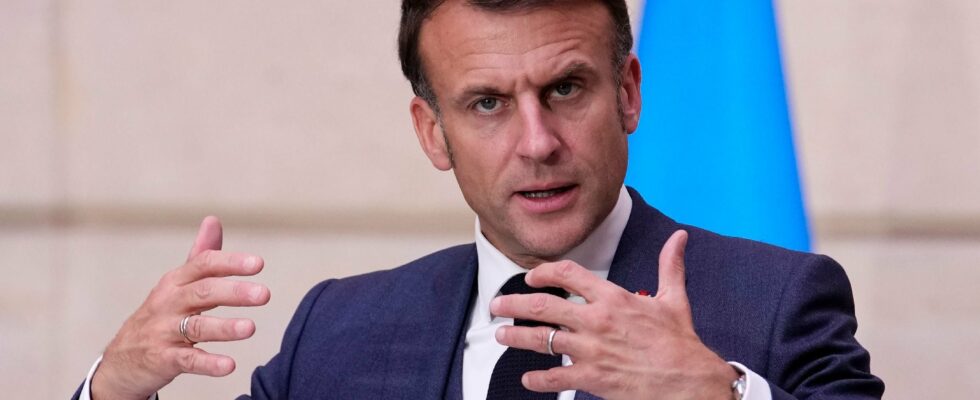If there is one criticism that we cannot make of Emmanuel Macron, it is that he lacks confidence in himself. While immigration is reaching peaks, the level of violence is unprecedented, public debt has increased by 1,000 billion euros in seven years – including 250 only because of Covid -, public services everywhere are degrade, that our diplomatic influence is in decline and that the National Rally risks achieving an unprecedented score in the elections of June 9, it takes all in all a certain nerve to appear proudly on the front page of L’Express with this formula peremptory: “Our strategy is the right one”. “Everything is very well, Madam Marquise”, would undoubtedly have been more appropriate.
It would be unfair to make Mr. Macron solely responsible for the collapse of our country over the past forty-five years. It would be just as true not to approve the reforms undertaken since 2017 to restore the economy around the values of work and investment: elimination of the ISF, unfortunately replaced by the IFI, just as ideologically flawed and more unfair ; reduction of IS; flat tax ; pensions; flexicurity of the labor market, already promised in 2007. It is inevitable that these reforms will take time to produce effects.
What Emmanuel Macron pretends to forget, on the other hand, is that he has been in charge for seven years, and even twelve if we are willing to consider his active participation in François Hollande’s five-year term – two years at the Elysée , two years in government. On this time scale, his results are too insufficient for his strategy to deserve the qualifiers he addresses to it. They hardly hide the consequences of the utopia of “at the same time” and the arrogance of its governance. From the destructuring of political life to the drift of public finances and the destruction of the senior civil service, their cost is exorbitant.
None of the major indicators of the weaknesses of the French economy have been impacted: neither the level of public spending, the highest in the European Union, nor that of compulsory contributions, the highest in the world. As Margaret Thatcher said, the natural tendency of politicians is to think that money is better spent by them than by the businesses and families from whom it is taken. Let’s try to imagine a France in which a third of public spending would be spent by citizens as they want: a revolution!
None of the real levers of equality, those which truly transform destiny, have been seriously reformed, neither school, nor health, nor housing. The President of the Republic never uses the word “justice”. He is unfortunately disqualified on the sovereign issues. And in defiance of his promise to change political life, he never admits his mistakes, for example on nuclear power.
In this context, the headlong rush of Emmanuel Macron’s European project is both worrying and laughable. Finally realizing, three years before the end of his two mandates, that Europe is suffocating under standards while the urgency is to invest, and that the priority given to renewable energies coupled with the generous opening of European markets does not only serves German interests, Mr. Macron promotes a “reset” of the economic model of the European Union reproducing all the faults of the French economic system: public spending, taxes, debt.
The low attractiveness of our model makes this federalist push unlikely. But it betrays the political, economic and social impotence of France, reduced to begging from the European Union for the means to escape its decline at the risk of selling off what remains of its sovereignty, in particular its nuclear deterrence and its place permanent member of the UN Security Council.
Another path should be favored: that of an internal recovery, capable of restoring France’s parity of influence with Germany in Europe and of bringing about the profound changes that the European Union actually needs, while respecting of what it is and what the people want it to be: a union of sovereign States having chosen to exercise common powers in the service of peace and progress.
*Emmanuelle Mignon is a lawyer and vice-president of the Republicans (LR).
.
